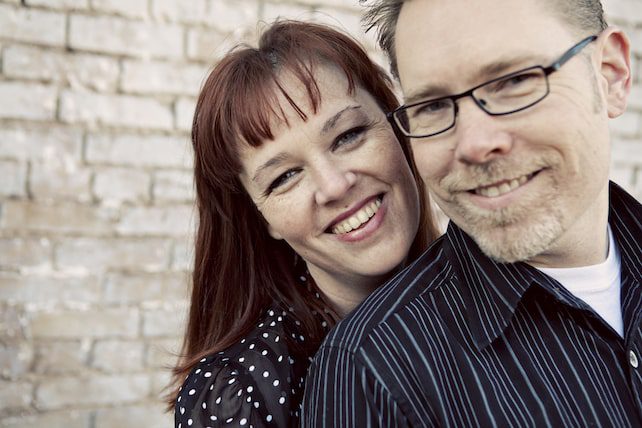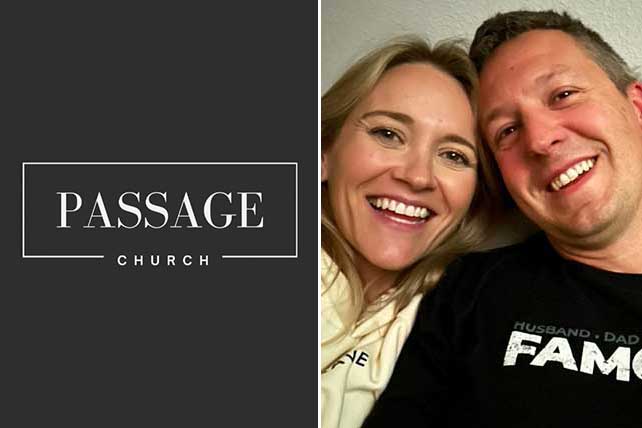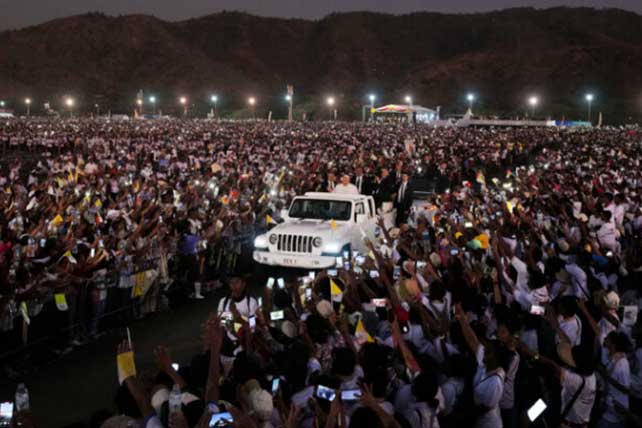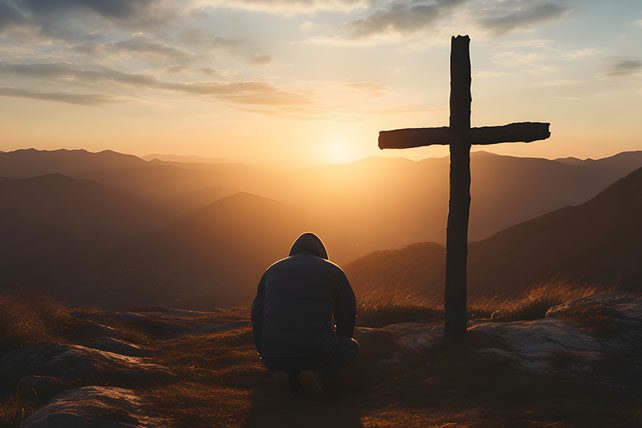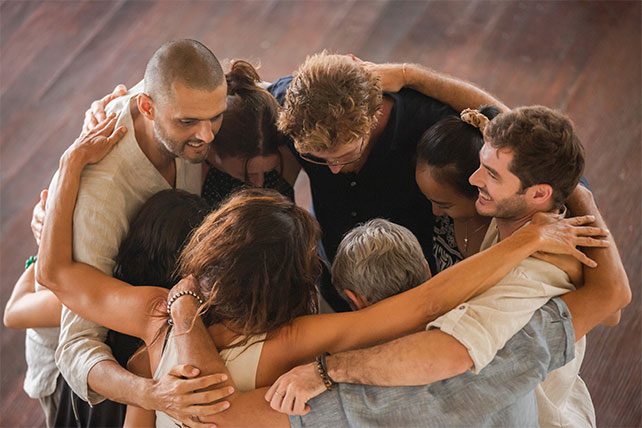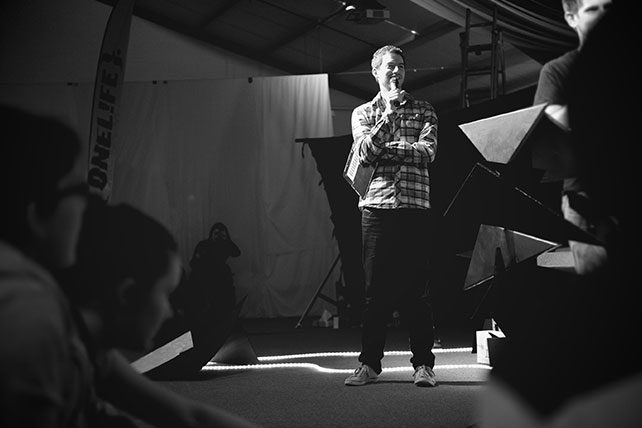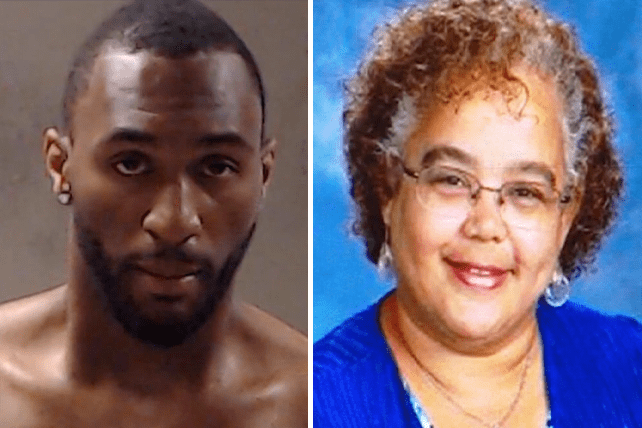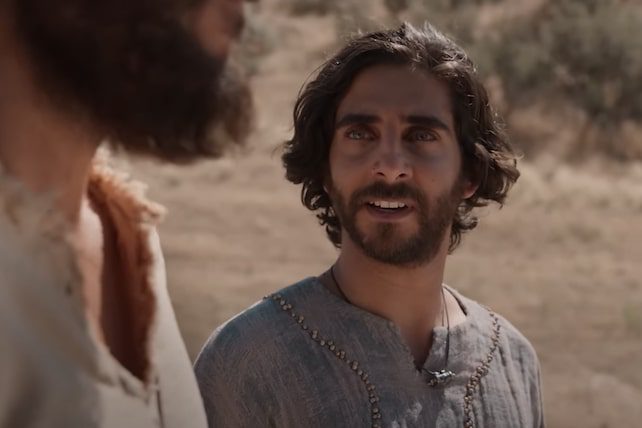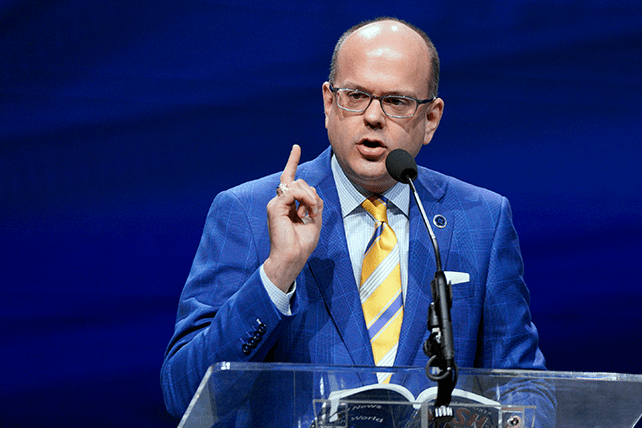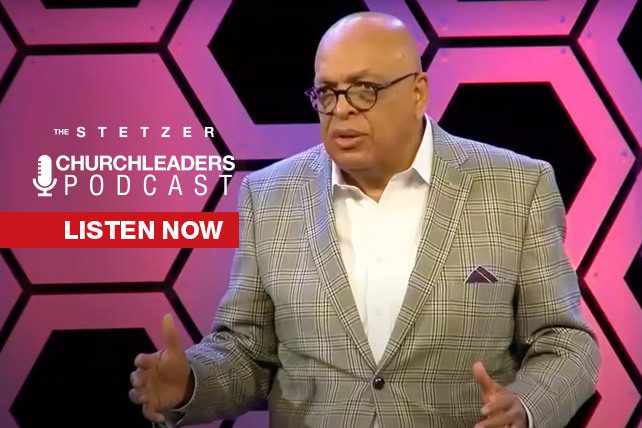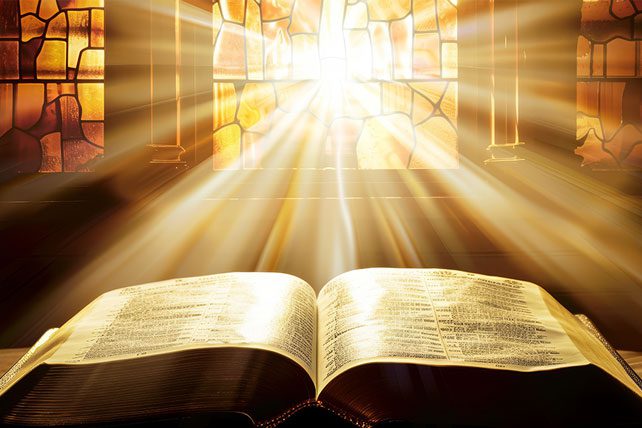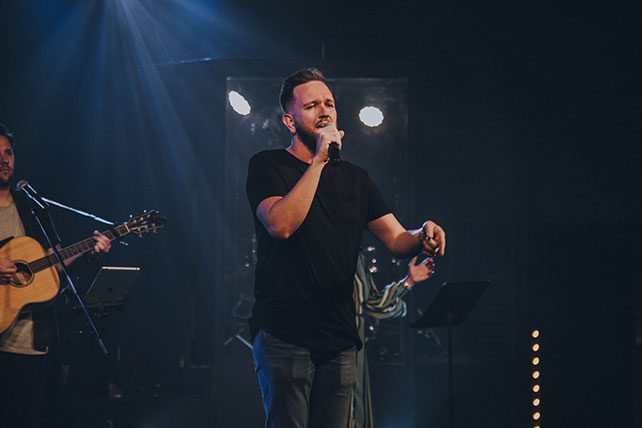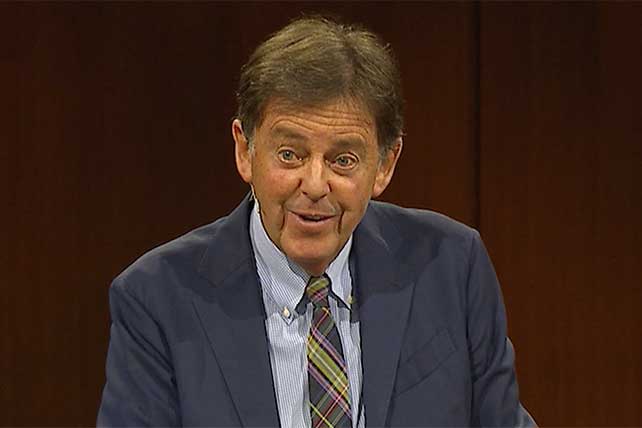Crawford Loritts on The Stetzer ChurchLeaders Podcast.mp3: this mp3 audio file was automatically transcribed by Sonix with the best speech-to-text algorithms. This transcript may contain errors.
Voice Over:
Welcome to the Stetzer Church Leaders Podcast, conversations with today’s top ministry leaders to help you lead better every day. And now, here are your hosts, Ed Stetzer and Daniel Yang.
Daniel Yang:
Welcome to the Sets of Church Leaders Podcast, where we’re helping Christian leaders navigate and lead through the cultural issues of our day. My name is Daniel Yang, national director of Churches of Welcome at World Relief. And today we’re talking with Doctor Crawford Loritts. Crawford is the founder and president of Beyond Our Generation. He’s been a church planter, served for 27 years on staff of Cru, and served for 15 years as senior pastor of Fellowship Bible Church in Roswell, Georgia. Crawford is the author of several books, including leadership as an Identity The Four Traits of Those Who Wield Lasting Influence. Now let’s go to Ed Stetzer, editor in chief of Outreach Magazine and the dean of the Talbot School of Theology.
Ed Stetzer:
Okay, Crawford Loritts, I am so I mean, I’m glad to have you on the podcast, but also, I appreciate you, I admire you. We’ve known each other for a while, and? And I love that you’re writing on something that talks. Here’s the word lasting in it. Again, the book is leadership as an identity the four traits of those who wield lasting influence. And Crawford, I just need some. I just need some leaders to last, let alone have some lasting influence. I was I mean, just I we could we could go down the list. I mean, these are prominent leaders and sometimes people aren’t prominent that we might know personally. And it seems I don’t know if it’s I don’t know if the if the fact that, you know, social media lets us know this happens more. I mean, I look back in history, there’s a lot of pastoral failures and ministry leader failures, but it sure seems that there are especially a lot today. I mean, so what’s what’s going on? I mean, what do you see? Why why are we seeing so many leaders fail and fall?
Crawford Loritts:
Well, I’m with you, Eddie. I mean, I have the same kind of angst and confliction here. I don’t know if we’re seeing more of it, or if the social media or if there’s a combination of both, but it’s it’s tragic. And I happen to believe that perhaps we are seeing more of it, because I am. Even in my circle of friends, I notice that more and more are going down that path. You know, I think, I mean, it’s it’s obvious, you know, friend of mine says finishing well means just to live. Well until you finish, uh, which is a sort of a cute line, but it’s very profound when you stop to think about it. I think what happens to all of us is that over time, especially if you’ve yielded to compartmentalization in your life, you have little hidden areas that where you’ve managed sin and you haven’t repented of it, and you get a bigger, bigger platform. More and more people listening to you or people responding to you, this kind of thing, you can make the dastardly assumption that you are as good as the way God uses you. And, uh, and with that kind of complacency and, you know, pride wears many disguises, including false spirituality, uh, you know, with that degree of complacency, you can actually lull yourself into sleeping or into thinking that it’s not that bad. I can manage this, I can handle this. And then God has to remind us, no, no, no, you can’t. No you can’t. And so, um, you know, the we know what. We know what to do to prevent it. Okay. I don’t think, you know, you can talk about accountability. You can talk about, you know, confessing your sins. You can talk about all that stuff. But unless there’s a passionate pursuit of our great God and communion with him on a daily basis, all of us are going to be ambushed. And you can’t we cannot take that for granted. And I think that’s at the end of the day. I’m preaching to the choir. We all know why it happens, but that’s what happens.
Ed Stetzer:
Yeah, but I guess, yeah, you are preaching. We are preaching to the choir. But at the same time, I think that after 4 or 5, six, seven, eight people that you admire or, you know, just just had confidence in this couldn’t happen to this person, you know. And then then it happens. Now again, we should caveat all this. I mean, I’m not talking about things like abuse that’s horrified. And more so I think sometimes when people I heard some people when the Ravi Zacharias thing became public, they were like, you know, there but the grace of God go I. And I’m like, no, no, no, no, that’s not the same thing. But your comment a minute ago that there’s like, we’re keeping things compartmentalized and we’ve got this. I mean, I think that a lot of pastors and church leaders can sort of do Christian leadership without without even batting an eye, without even. I mean, we know how to we know how to pray. We know how to lead people. We know how to do those things without batting an eye on the real heart change that they need in their life. So I guess the question is, how do we get there? And I was listening to, I think it was Nancy Beach. She was speaking at this, this thing we hosted a few years ago. And she said, it starts with loneliness because it’s lonely being a leader, and then it gets to entitlement because you’re lonely, you’re entitled, and then you get to, I’m paraphrasing. Then you start making bad decisions because you feel entitled, because you feel lonely and you’re disconnected from God and other people. So I mean, when you’ve seen this, I mean, you’re 74 years old. You’ve seen a lot of this happen. Where does it start? Like right now, if pastor and church leader who’s listening doesn’t plan to do something, but maybe the seeds could be there, how does it start? Maybe more than one way. But give us some examples.
Crawford Loritts:
It begins with with with the loss of a conscious awareness of my utter need for moment by moment dependence upon God. That’s where when whenever you drift from that. And what I’m talking about in the general sense is a profound heart gratitude for the grace of God and the mercy of God in your life. Then you start slipping into entitlement. You start using language. Well, I deserve this. I deserve this recognition, I deserve this, these perks. And along with that is a drift toward intentional, aggressive accountability. Nobody can hold anybody accountable. I’ve seen guys going to accountability groups and on their way back to the church office, they stop at a motel and have a rendezvous with somebody. So accountability is all voluntary, and you’ve got to be thoroughly convinced that we are permanently needy. And unless you embrace the wonderful gift of brokenness, we’re all going to head in that same direction. We’re all going to head in that same direction.
Ed Stetzer:
So embracing that brokenness is key to it. But I see brazenness too often. Like, for example, I just recently preached at a church, a really wonderful church with a godly pastor who had to clean up a mess. So the former pastor and I think a lot of people would know this pastor’s name was so brazen in his immorality that actually on church property and you know that this actually takes place here between services and like, and how do you get to a place where your conscience is so seared. And maybe where they’re so brazen because of this. And again, I’m not saying it’s worse because church property. I just think it’s so brazen. It’s bad anywhere, at any time, in any way. But I’m like, how do people because I’ve seen people that I was, you know, kind of on a maybe even knew like I’m thinking of one person who’s not famous, but but who, like, just ended up going down this path and kept going, you know, the old preacher saying, you know, sin will take you further than you want to go. Keep you longer than you want to stay, cost you more than you want to pay. So so what gets in the heart of a man or a woman that this gets off track and then it keeps going off track? Well, you can tell I’m frustrated, but I need wisdom, I need wisdom.
Crawford Loritts:
I need it to it. It’s it’s a and it’s just it begins. All of us are going to will become, um, accustomed to sin. And unless, unless we we continue moment by moment to repent and realize, as the old Puritans said, said that we are repenters if you don’t flush the stuff out of your system. Sin is deceptive. It is lying and and and so you build these areas in which you get, you cultivate a comfortable disobedience. And once you cultivate a comfortable disobedience and you minimize the impact of your line or your lust or your greed or your sin du jour, and you don’t get rid of that. You don’t work on killing it. You don’t work on despising it. You accommodate it. You reduce you. You reduce your definition of grace to to grace, meaning permission. Uh, and you and all of that starts to slide you over there. And what’s your line? All unrepentant sin leads to temporary insanity. Mm. And so it’s insane for a person to be doing the brazenness is a manifestation of sinful insanity. And you leave and you begin. All sin will lead you into self-deception. Every last one, every last bit of it will lead you into self-deception unless you repent of it.
Crawford Loritts:
And pride says to you that you are the exception. You are the exception. Every last one of the guys that I know of who have not repented of their sin once they’ve been caught, that’s that’s where their head is. I can close my eyes. The circumstances might be different, but the identity is the same, right? Yep. It’s the same story. Ravi Zacharias in the end, his brilliance was also his downfall. Because he could he could he can, uh, diabolically manipulate and project something that he wasn’t. But if he were alive, I guarantee you he would say the same thing that way back yonder. Years and years and years and years and years ago. He did not deal with the sin of lust in his heart. He cultivated it. He nurtured it. Um. And then he was afraid. He was afraid of accountability. He was afraid of being found out. But even when you die, the shrapnel is released. Yeah. You know, and it’s the same. I see friends of mine now who are living and the consequences of their sin. Man. You know, families destroyed.
Ed Stetzer:
Sin catches up, man. Sin catches up. People figure out it’s it’s. And I and I would think that, you know, even the Bible, the Scripture talks about, you know, publicly rebuke a false teacher as a warning to others. Well, in a sense, I mean, social media, if you are, if you just are aware of anything going on in the world right now, you see what happens if you don’t deal with your sin. And again, it seems to start in small ways, and then we accommodate it, and then we accommodate a little more. And then we make excuses for the accommodation and then we and then it gets to this brazen. And I guess it’s just, you know, I mean, knowing I was going to talk to you and just hearing the story from the church I preached that recently was just shocking. It was just it’s amazing to think of the brazen nature of sin. But how do you get there? How does your conscience get so seared its steps that get there? So. So again, you wrote leadership as an identity the four traits of those who wield lasting influence. And you you kind of deal a lot with the character question, but it’s not just the character question that’s there. But then you come back to the character question. And so so let’s talk about leadership as an identity, and let’s start with where character fits into it, and then what flows out of that character as well. So start with the character question where does that fit?
Crawford Loritts:
Well character is everything. Yeah, character is everything, and the ambition of every great leader is that their character will be greater than any platform that they ever stand on. Now, I’m not saying that that’s true. Uh, there certainly have to grow into things, but the passion of every godly leader is that their character will be greater than the platform that they that they stand on. Secondly, you know, you have to understand. You have to understand that the Bible does not does not, uh, segment your gifts, talents, and abilities from your identity.
Ed Stetzer:
Mm.
Crawford Loritts:
And it is. It is who you are that God anoints. It’s who you are that he blesses. Now, to be sure, we just talked about, I mean, we talked about people living in sin and God blessing his word and God blessing that ministry. But yet you don’t want God to take his hand off of you. So character is everything you have to be worth following, and you’ve got to keep that in mind and that that really every task that God gives to us is a statement of his greatness and his glory and who he is. And so the more God uses us. Should, should, should drive us to deeper pursuits of holiness and godliness and character because not only what we do needs to tell the truth about God, but who we are needs to tell the truth about God. And that’s that’s what God smiles on and that’s what brings his favor on on the task that he gives to us over time. So you can’t separate the two. You shouldn’t separate the two. Right? And I have a little bit of a bone to pick with how we do Christian education along these lines.
Ed Stetzer:
Come on, come on, right now. You got the dean of a seminary. Tell me, what’s your bone to pick with theological education?
Crawford Loritts:
Well, my bone to pick is that we make too much of a separation between our holiness and our academic rigor and the disciplines that we have. It ought to be integrated, integrated, and people ought to graduate thinking that it’s not okay to separate your mind from your soul, that everything is mixed in together, and that what God’s called us to be and who he’s called us to be, no matter what it is, if it’s under the banner of being Christian. It’s singular. It’s not about God pumping up my resume or making me look good in certain circles. It’s all about his honor. It’s always, always about his glory. And so my mind and my soul is in great pursuit of God. And we’re always in the stewardship process. And so I just really think, you know, the way we teach preaching, the way we teach all these other things, there has to be intentional integration, intentional.
Ed Stetzer:
I want you to come out. You got to come out. Now, you say that you got to come to Talbot School of Theology, because here we have the Institute for Spiritual Formation. And I believe when I look across all of the seminaries out there, we’re the only school with a robust engagement of multiple experiences of spiritual formation, retreat, participation and more. But still, you’re going to get people who do all those things. So I’m with you, and I think I love one of the reasons I came to Talbot. You know, I’m just I didn’t create this. I’m not taking any credit for this is the robust engagement of some of those characteristics. Issues. But I got to tell you, Crawford, here’s the problem. What you’re saying we all want to be true, but that’s not what the world rewards. The world rewards. Ability and charisma. That’s right. And the church reflects more the world rewarding ability and charisma. Which is why, you know, at the beginning of The Rise and Fall of Mars Hill podcast, I talked about that there’s a body count of young leaders who whose ability propelled them to platforms their character wasn’t.
Crawford Loritts:
That’s exactly that’s exactly right.
Ed Stetzer:
So, so but here’s the thing that’s like in your church, like, you know, was it Adrian Rogers said, people will forgive you for anything except bad preaching. And I get what he was saying. But let me and he’s a person of character and thank God for his character. You knew him? I met him a few times, went to his funeral and cried like a baby, hearing his children talk about his character. But here’s the thing, right people? I think most churches will have a great communicator without looking at the life of the person and looking at the life of the person, and if not, even if they’re not a great communicator. So how do we I mean, I want people to be great communicators and people of character. How do we do this? The Setzer Church Podcast is part of the Church Leaders Podcast Network, which is dedicated to resourcing church leaders in order to help them face the complexities of ministry. Today, the Church Leaders Podcast Network supports pastors and ministry leaders by challenging assumptions, by providing insights and offering practical advice and solutions and steps that will help church leaders navigate the variety of cultures and contexts that we’re serving in. Learn more at Church leaders.com/podcast network.
Crawford Loritts:
Well, you know, actually, there’s no strategy to do it. You can preach about this stuff until the cows come home. But what you have to do, you have to have people who model the destination before others. You know, leadership in the Bible is prophetic, meaning that the leader has to be the portrait of the desired destination at which the followers should arrive. You got to. You got to be the stuff. Now, one of the hard lessons I’ve learned in life and in ministry and editor. I know you have too, because you’ve got some mileage on you as well. One of the hard lessons you learn is that you cannot control or disciple another person’s will. You cannot do that. You. But, but what you can do, what you can do is, is emphasize and model what is core and central to everything and not take it for granted. So you’re setting the table and the environment for that to happen. You know, I mean, Adrian Rogers, one of the reasons why he was a great preacher, and I say this when I teach homiletics, you know, I said, the irony is that the greatest preachers of all times have not necessarily been the best preachers, although a few of them have been the greatest preachers of all times, have been the ones that God has used in a mighty way.
Crawford Loritts:
And the reason why God’s used it in a mighty way is that because they led with the spiritual dynamics, the Holy Spirit was greater than their competencies, and his anointing and in favor was greater than their ability to make verbs and adverbs and nouns and all these other things agree and not to put that down. But we have got to stop minimizing spirituality. We have got to stop it. We’ve got to stop trying to be like everybody else. I mean, they’re not mutually exclusive. God wants us to be competent. God wants us to love him with, with with our minds. But godliness is godliness. And God has been hitting straight licks with crooked sticks forever. So you got to stop being full of yourself, right? My mother used to say, good meat makes its own gravy. And so we keep concentrating on the gravy. No, we need to concentrate on the quality of the meat. So that’s. You know, these are a bunch of cliches, but it’s so true.
Ed Stetzer:
You. Oh, listen, you can. I don’t mind cliches if they’re true. That’s that’s, uh. So the meat the gravy thing threw me off there, but I think I understand what you’re what you’re what you’re talking about. Okay. So in the book and again people the book, the remember the book is leadership as an identity, the four traits of those who wield lasting influence. So what are I mean, you’ve already mentioned some of them, but go through the four traits because they might not be what people expect. It’s not charisma. It’s not force of personality. What are those four traits?
Crawford Loritts:
They’re almost embarrassingly obvious. And, uh.
Ed Stetzer:
Well, if they were embarrassing, obviously we wouldn’t be having all these failures. But tell tell us what they are.
Crawford Loritts:
Yeah, they are brokenness. Uh, the second one is Uncommon Communion. I’ll explain that in a second. Uh, servanthood as an identity, not as a strategy. And the final one is radical, immediate obedience. These are the four. These are the four things. All of them are pathways to our pursuit of our great God. And and it works both ways. Brokenness has to do with a permanent sense of God neediness, God neediness that I always need him, that I always need him. It’s always about dependence upon him and the realization that over time it’s not so much. God doesn’t so much use what we bring to the table. He uses what we surrender to him. And that’s that’s that posture of reliance. And you got to be careful that you don’t reach a carnal tipping point where God blesses your ministry. Then all of a sudden you want to leverage that and do double billing. Over time, God does not do double billing. It’s always, always, always about dependence upon him. So God sends us holy handicaps to keep us dependent upon him. Thorns in the flesh. Uh, challenges.
Ed Stetzer:
You can’t just throw out holy handicaps and move on. They’re so give you thorns and holy handicaps. How does he. How does he do that for us and to us?
Crawford Loritts:
Well, he reminds us he can do that by severe wounding in relationships, things that happen to us, uh, all kinds of struggles that we have. And you know what he says? He’ll say to us, I’m not taking this thing away from you because it is the very pathway that you’re going to experience. My grace and strength moment by moment, and it’s going to be a permanent reminder that you need me. Whether it was Spurgeon’s wrestling mightily with depression, or whether it’s something else in your heart and life that these inadequacies, these inadequacies are gifts from a great God if they make me more godly. And if you’re, you know, we’ve all been there and it could be various seasons in your life that you go through. I remember a season in my life. Something happened to one of our adult children, and I, I was just it was during a time in which my heart was heavy and I had to preach during that season, and I just thought it was, you know, it was a terrible time. And I went back and listened to those messages.
Crawford Loritts:
At first I thought those messages were a hot mess, and I looked back and listened to those messages. They were the greatest message ever preached in my life. So it is. It is God reminding us and whispering in our ear. Ed Crawford, you always need me. You always need me. There’s never a second in your life where you don’t need me. Don’t let the standing ovation go to your head. The fact that they want you to sign the Bible. Don’t let that go to your head. You need me. And so brokenness. And that’s. That was Moses experience. God snatched Moses and used Moses not because he grew up in, you know, Pharaoh’s household. He snatched him and used him because all of his sense of privilege and place and platform and recognition had been taken from him. He said, okay, now, but are you ready? He said, ready for what? You’re ready and I’m going to keep you on a short leash, and I’m going to use you in a mighty way. And that principle is true today. Yeah.
Ed Stetzer:
Okay.
Ed Stetzer:
So I think part of the challenge is, is what that looks like in church life, because one of the realities is I’m trying to remember, I’ve heard different people say this different ways about how we were not designed for fame and, and, and again, you’re I mean, you’re a well-known author. Most pastors, most pastors who are listening don’t don’t write books, you know, don’t don’t consider themselves having fame. But in their church, like when I was pastoring a church of 200 people, people thought I was an expert on everything, and they would ask me questions. And, you know, what do you think about the stock market? I’m like, I don’t know. Or or maybe we’re having some sort of I mean, I just wish pastors I mean, it’d be great if less pastors wrote less books on topics with which for which they’re not experts, and we could rely on others. And and I think that’s an important distinction between the two. But there is a sense that when you’re providing spiritual leadership, when you’re up in front of speaking to people on a weekly basis, church, a 200 or 20,000, at a church of 200, you’re still elevated on a pedestal. And yet there are some substantial dangers that come with that. And so. So how then do we sort of address that, maybe push back on that. So because if we’re not designed for fame and yet fame in a church of 200, you’re still the pastor. So so how do we push back on that in ways that, that aren’t trite, like, oh, you know, it’s you know, I didn’t prepare this sermon. The Lord just gave it to me. But but are not trite, but are actually sincere. You talk about it some in again the books leadership as an identity. But how do we push back on this? How do we how do we not buy into the press that even a church of 200 puts on? Yeah.
Crawford Loritts:
Well, well, you know, I’m going to say something that’s kind of intuitive. Don’t curse the fame, okay? Don’t curse the fame. Don’t don’t God. If God gives you recognition, it’s not the recognition that destroys you. It’s your head that destroys you. It’s not. It’s not the visibility of God’s giving you visibility. Then you need to make sure that your communion with God can sustain that level of visibility. It’s like the ballast holes and freight ships you got to fill. If you unload the cargo, you better fill it up with sand or water or something so that the ship doesn’t ride that high in the water. And so the problem is not with recognition. The problem is with the person who’s being recognized. And it’s understanding. It’s understanding that that God doesn’t use me. God does not use me because I’m all that sharp. If I can remember, if I can, if if I can remember and have a healthy detachment. And I say this to younger leaders all the time, your most your time of greatest impact is when you’re detached from how God is using you, and you understand the way the how he uses you is not necessarily a reflection that you are somehow next less needy. Now you’re always needy.
Crawford Loritts:
And it is. It is understanding moment by moment that I commune with him. Is spending time on your face before God every single day. It’s staying in his word. It’s thanking people who who want to thank you for your answers and give you a pat on the back and this kind of thing, you thank them, but you quietly say in your heart and mind, God, I don’t deserve this. All the glory goes to you. It is living in that level of communion with him. So the problem is not the platform. The problem is is the person. It’s the person that shifts their view of sanctification to how God is using them, rather than who God is all the time. And that’s that’s what we have to help people with. You know, what’s the alternative? I mean, if you know, if you know that somebody puts you on that fence post as a, as a, as a, as a turtle, you’re not going to brag about being on the fence post. But if you if you deny all of that, you’re going to create all kinds of scenarios in which how you crawled up there and all of this kind of nonsense. And so I think it’s how we think about ourselves.
Ed Stetzer:
Okay. Yeah.
Ed Stetzer:
Yeah, it makes sense. Makes sense, I guess. Um, you know, one of the weird things in my life is I end up connecting and sometimes teaching at, you know, a variety of different churches. And I have found that in some smaller churches, medium churches, and some of the largest churches in the world, the traits are there that lead to trouble in any of those places and spaces. But of course, it becomes magnified when your church becomes larger and and the really the the capacity for more damage, more adoration that leads to more isolation, that leads to more sense of entitlement. It gets it gets it gets worse. So it has caused some people, I mean, not just, you know, transparently. You know, Donna, Donna and I were friends with, uh, several, several megachurch pastors who experienced pretty spectacular falls. And, and Donna said at one point, you know, I think there’s something in the water of the megachurch itself that causes that and and again now. Yet on the other hand, some of the most godly people I know are humble leaders who lay down their life for others and are just as like, unimpressed by the church that they lead. They’re just impressed by the God that they serve. And so I’m just trying to figure out cause and effect here. And, you know, I know you don’t have all the answers for this. We’re all trying to figure this out because, again, I see the same seeds in a church of narcissistic church, of pastor of a church of 75 people, as you can with the church of 75.
Ed Stetzer:
Exactly, exactly.
Ed Stetzer:
So, so how do you, as a leader, like, let’s say it’s you and maybe, maybe you’re not listening to a podcast for church leaders because you think you’re better than that? I don’t know, maybe someone will send this to you and then you’ll wonder why they sent it to you. Um, so. But how do. Because a lot of the cases, not all the cases, I think there are some people who are just predatory from the beginning, and they go into this because of that. But for the people who right now are making decisions that could derail them and shipwreck them later, How does brokenness, communion, servanthood and obedience? Where where would you say this is the place for you to start? Those are the four things in Crawford’s book leadership as an identity the four traits of those who wield lasting influence. Where would be the place to start?
Ed Stetzer:
Well, the place.
Crawford Loritts:
To start is to sit down and just realize, you know, you take an inventory of your life. I mean, I mean, you know, uh, do I sense my neediness? You know, I mean, I it’s hard to feel your neediness when you got a lot of nickels and noses around you. Okay. Um, it’s hard to feel your neediness when when you’ve got all these people asking you to show up and speak at this thing or to do this thing, or, you know, you got publishers asking, you, okay, well, can you write this? Can you do this? And demand can give you a false sense that I’m not quite as needy, but as my dear friend, uh, says to me, he says he says, look, Mike Duke, who’s a former CEO of Walmart. I’ll never forget this. I had the privilege of serving on a board that he served on and he made a statement. This particular company was just hitting every successful measure you can imagine. And he said these words. He says, we ought to celebrate this, but I think we ought to be aware that the seeds of failure more often than not sown during seasons of success. And the reason why they’re sown during seasons of success. You you begin to drift from what got you there and you think it’s really all about you. But when you were hungry, when you were focused, that’s when God blessed you and gave you great favor. It’s kind of like what God had to say to David as he was thinking about building that temple. And God said, ah, no, no, David, I think that’s a little bit of old business.
Crawford Loritts:
That should be new business for Solomon. You know, you shed a little bit too much blood. And look, let me just remind you, David, not that you don’t need this, but I took you from following sheep, And I made you the greatest king that Israel ever had. Don’t get it twisted. And when people are depending upon you, we all get seduced into a bit of a messiah complex. And when we get backdoored into that Messiah complex, I mean, we act like the fourth member of the Trinity. Uh, and, you know, and I gotta tell you, this is true. I was told some younger leaders just the other day. I said, you know what? Everybody’s screaming about holding people accountable. But the truth of the matter is, the more visibility you have, the more the people will give you a pass. They do. They don’t. They don’t ask you the hard questions anymore. They make a set of assumptions about you. Shoot, you’re Ed Stetzer. I mean, look, you you you’re on every board there is. You’re you’re all over the place. I mean, and look, look, they don’t ask that in my small world. They don’t they don’t ask me a lot of hard questions anymore. So unless you aggressively take all that stuff that God has given to you. Now, I know you’re probably married to a woman like I am. And you know he’ll tell me. Hey, you thought that was pretty good, huh? Well, that was awful, Crawford.
Ed Stetzer:
I mean.
Ed Stetzer:
I am indeed. My wife’s very honest with me. And I would say to one of the one of the weird advantages that I have is that because I work at an institution like this, you know, and I’m relatively new here, but I have a boss and, you know, and I had a boss before that and before that. And Margaret Diddams was my boss for a while at Wheaton College. And, and she would ask, what are you doing here? What are you doing here? And before that, you know, I had a boss before that, Brad Wagner at LifeWay. And he would ask this and ask that. And so, so having a boss, which most pastors don’t because they don’t function, I mean, they have an elder board, but a board is different than a boss. So I really have an advantage. Somebody who just says, no, that’s a dumb idea. I don’t want you to do that or you’re doing stupid things. Don’t do those things anymore. So so how then would you suggest that the pastors, leaders who are going to read the book, and I hope and I hope find it super helpful? I think they will. Again, it’s leadership as an identity, the four traits of those who wield lasting influence. It’s just been out for a little while. It came out last year. Um, how would you say to the pastor who’s listening that what should that person or pastor or staff member? What should he or she do to get the kind of people in his or her life to help them grow in these four traits for those who wield lasting influence?
Crawford Loritts:
Well, I think, first of all, you know, um, as you read the book, there are profile will begin to emerge, and you look for people who are making progress in these areas and who are leading this way. And you, you, you become an aggressive follower and invite them and invite them in into your life. Um, and that’s that’s the very first thing that I would say. And I would also say that to read it, um, somewhat devotionally with, with an eye on measuring your own heart. Where am I with this? You know, and I’m very honest in saying, I mean, this stuff I have.
Ed Stetzer:
I.
Crawford Loritts:
Have learned the hard way. We’re all in progress and this kind of thing. But if I would say that there’s one thing in the book that goes all the way through is that there’s got to be a profound appreciation for authentic humility in your heart and life. And and by the way, let me just say this. I know I’m rambling a little bit here. You said something a few moments ago that I want to underscore. I, of all these 50 some odd years I’ve been involved in ministry, I’ve come to, there’s a lot there’s a lot of convictions I had back then that I don’t have today. But there are some things that I’m sure right now. And I tell younger leaders this all the time, and I try to model it myself, never follow anybody that’s not following somebody. Ever. Ever. And whether it’s a you call them a boss, there’s got to be some, some people in your life who can tell you no, there has to be, because we all have famously. I mean, you know, Tim.
Ed Stetzer:
Keller put.
Crawford Loritts:
It famously, somebody got it from somebody else. We all have idol factories. We all, we all have. We don’t. We’re not objective about ourselves and we desperately need that.
Ed Stetzer:
Yeah, I think for sure. And the challenge is, is how do we decide to grab Ahold of that? And I think that’s where we need that work in the heart. And what I would say is, again, thank you, Crawford, for being on on the podcast. And thank you for your faithful ministry. And let me just say, if you’re listening, this could be the Lord used this conversation to say, if you went back and you’re like, kind of didn’t listen through the part about when you start compartmentalizing and saying, it’s okay. This area of I think, I think you said lying or lust or greed or whatever they were, if that’s compartmentalized in your life, you maybe you zipped right past it. You probably don’t listen to Ed Stetzer podcast on 1.5 speed because I talk too fast. But but if you don’t zip past that part and use this as a wake up call, get a copy of the book. Again, it’s leadership as an identity. The four traits of those who wield lasting influence. I want you to last with your character and integrity intact. Thanks for listening. And thanks, Crawford, for joining us.
Ed Stetzer:
Thank you. Eddie.
Daniel Yang:
We’ve been talking to Crawford Loritts. Be sure to check out his book, leadership as an Identity The Four Traits of Those Who Wield Lasting Influence. And you can learn more about Crawford at Beyond Our generation.com. Thanks again for listening to this Church Leaders podcast. You can find more interviews, as well as other great content from ministry leaders at Church leaders.com/podcast. And again, if you found our conversation today helpful, I’d love for you to take a few moments to leave us a review that will help other ministry leaders find us and benefit from our content. Thanks for listening. We’ll see you in the next episode.
Voice Over:
You’ve been listening to the Stetzer Church Leaders podcast for more great interviews as well as articles, videos, and free resources, visit our website at Church leaders.com. Thanks for listening.
Sonix has many features that you’d love including transcribe multiple languages, world-class support, secure transcription and file storage, automated translation, and easily transcribe your Zoom meetings. Try Sonix for free today.
 Marriage conferences can be a significant tool in strengthening the bonds of couples within your congregation. While many marriage conferences provide a memorable date night with some food, fun, and a healthy dose of information about relationships, these experiences often fall short of being truly transformative. But what if we could create a church marriage conference that not only entertains but also catalyzes real, lasting change? Here’s how to design a “killer” marriage conference that goes beyond the ordinary and moves couples toward the next level of marital enrichment.
Marriage conferences can be a significant tool in strengthening the bonds of couples within your congregation. While many marriage conferences provide a memorable date night with some food, fun, and a healthy dose of information about relationships, these experiences often fall short of being truly transformative. But what if we could create a church marriage conference that not only entertains but also catalyzes real, lasting change? Here’s how to design a “killer” marriage conference that goes beyond the ordinary and moves couples toward the next level of marital enrichment.
